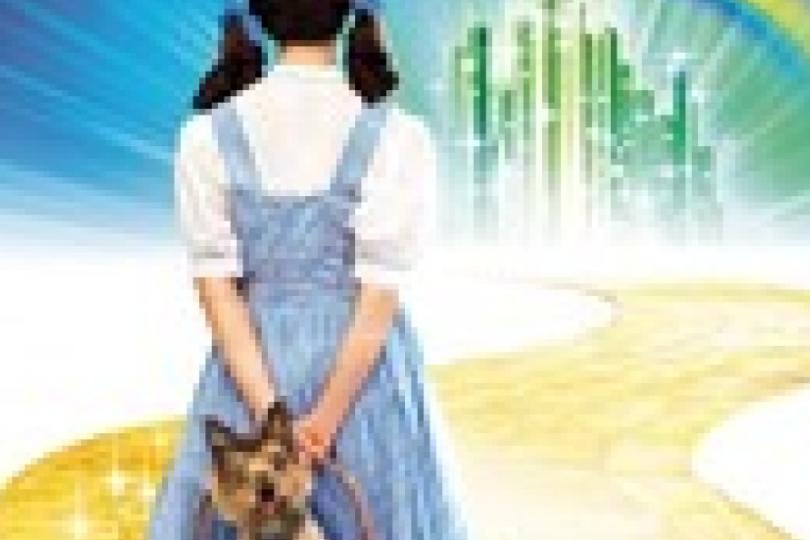Reviewing the reviews: Meeting expectations
Editorial

It’s a sad truth of the arts that the less publicity a production needs, the more it’s likely to get. That was certainly the case with the Ordway’s December production of Andrew Lloyd Webber and Jeremy Sams’ The Wizard of Oz. A largely non-local show that almost certainly would have packed the house regardless of reviews got one in pretty much every publication that runs them (City Pages bring a notable exception), and even in quite a few that generally don’t. Bemoan it all you want, struggling independents, but when it comes to general audiences, there’s no defense against a double dose of familiarity like Wizard and Webber. For better or for worse, it’s not like the Brainerd Dispatch sends anybody to check out the latest production at Mixed Blood.
Actually, reviewing a production of a story this well-worn should be somewhat liberating for mainstream critics. My last review of reviews fussed quite a bit about word counts and how much of each reviewer’s extremely limited space was eaten up by the requisite plot summary. With a play like The Wizard of Oz, a summary would be redundant considering the half-dozen or more times everybody’s seen the movie. Unfortunately, the space theoretically saved by common knowledge is promptly filled by a different requirement: comparisons to the original movie.
Rob Hubbard’s Pioneer Press review certainly takes that tack, opening with a lengthy assurance that the Andrew Lloyd Webber juggernaut hasn’t consumed the show you know by heart. “This is The Wizard of Oz as you remember it,” Hubbard says, and that’s presumably a good thing. The comparisons continue throughout. Lead actress Danielle Wade “doesn't step outside the template of the original, save for a slightly more contemporary pop approach to her balladry.” Jacquelyn Piro Donovan’s Wicked Witch is “considerably funnier, only a little less scary and significantly more tuneful” than Margaret Hamilton’s original. The supporting cast “seems to know that you don't want to mess with a classic too much, and no one eclipses their film counterpart by taking a character in any particularly adventurous direction.”
Rohan Preston reaches similar conclusions over at Vita.MN, noting that Donovan “has the Wicked Witch’s cackling laughter down pat” and that Wade makes an impression playing “a more mature-looking Dorothy than we are accustomed to.” Preston includes a rundown of all the newly added songs and allays any fears that they may detract from Harold Arlen’s canonical material, concluding that the production “captures the charm of the original film but also feels fresh.”
Look, I understand that big publications need to give ink to a big-name touring production like The Wizard of Oz, even if it means bypassing some smaller-scale local creations. I also get that it’s nearly impossible to avoid pitting a high-profile remake against its beloved source material. And I know that a mass-audience paper is at least partially obliged to cater its criticism toward the readers who’d be interested in seeing said remake in the first place. I understand all of that, but it doesn’t mean I like it.
Seeing The Wizard of Oz praised for its faithfulness and familiarity seems like a microcosm of the mindset that blamed the Guthrie’s poor economic year on too much “risky” programming. While I don’t doubt that this Wizard is very well-done, it’s disheartening to see a piece of art get accolades largely for not being a letdown, especially when there are so many original works out there with no level of expectations to be judged against. Call me an elitist, but I’d rather leave a theater feeling ambivalent about something that surprised me but didn’t quite gel than feeling satisfied by something that hit all the expected notes and added a few flourishes.
And the same goes for reviews, especially reviews of revived classics. Short of recruiting a reviewer specifically for his or her ignorance of all things Oz, it’s probably unrealistic to expect anyone to review a show like this entirely on its own merits, but it sure would be nice to see someone try. Would this production be as praiseworthy if it was viewed as an original piece of musical theater? Would someone coming into the Ordway with no idea who Dorothy or the Tin Man were come out remembering them as iconic characters? These reviews’ overall positivity make me suspect the answer is “yes,” but all I know for sure is that people who already love the movie won’t have their feathers ruffled. Again, I understand that I’m not the target audience for The Wizard of Oz or most reviews thereof. Still, wouldn’t it be keen if the reviews could forego the target audience altogether and dig a little deeper than an inventory of plot points and highlights?
As it stands, my favorite review comes from the aforementioned Brainerd correspondent Mary Aalgaard. Writing on her own Play Off the Page blog, Aalgaard gushes unabashedly about the set design, the music and the commanding stage presence of Toto. She too is happy that the show provides “exactly what we came to see and hear,” but a statement like that carries more authority for me when it comes from a reviewer who casts herself as an enthusiastic audience member gasping in awe right along with a group of little girls. While there’s obviously a difference between that approach and the more formal tone required by a big city daily, Aalgaard’s is a lot more effective in making this Wizard sound like something to see. I'll take that over something that merely lives up to expectations any day.




